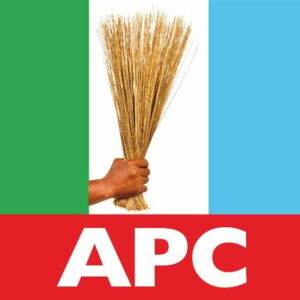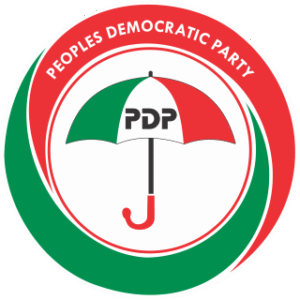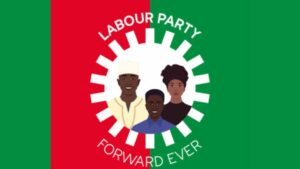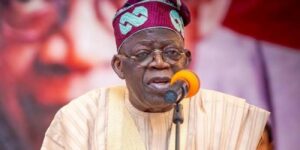By Headlinenews.news Investigative Desk.
As Nigeria adjusts to the realities of sweeping economic reforms and rising living costs, a speculative nationwide poll conducted using available data and trend analysis by the National Patriots/ Headlinenews.news indicates that the All Progressives Congress (APC) remains the most structured and dominant political force, though a large segment of the population remains undecided or politically disengaged.

The findings, derived from publicly available sentiment data, recent approval ratings, and historical voting trends, show that while APC retains a strong 45% preference share nationally, more than one in four Nigerians (25%) remain undecided — signaling both opportunity and vulnerability for the ruling party ahead of future elections.
National Standing: APC Leads Despite Economic Strain
According to this speculative projection, party preference among Nigerians as of 19 October 2025 would break down as follows:

Party Estimated National Support Remarks
APC (All Progressives Congress) ~45% Maintains dominance through structure, reach, and incumbency, despite reform-induced hardship.
PDP (Peoples Democratic Party) ~20% Retains its traditional base but struggles to rebuild nationwide momentum.
Other / Minor Parties (Labour Party, PRP, NNPP, etc.) ~10% Fragmented and regionally concentrated, appealing mainly to youth and urban voters.
Undecided / No Preference ~25% Reflects frustration with hardship, weak opposition, and poor communication of reforms’ long-term benefits.
The APC’s lead remains significant, but not unassailable. Analysts note that political loyalty is softening, and public patience is being tested by economic hardship. Yet, Nigerians appear to prefer stability and structure over fragmentation — a factor that continues to favour the ruling party.
Regional Breakdown: APC Retains the North, Split in the South

Region APC PDP Others Undecided Key Insight
North-West / North-Central 50% 18% 12% 20% APC maintains dominance due to deep grassroots structure and regional loyalty.
North-East 45% 20% 10% 25% Security and humanitarian issues create sympathy for incumbency.
South-West 40% 22% 14% 24% Tinubu’s political base remains loyal but needs stronger economic reassurance.
South-East / South-South 30% 25% 20% 25% Most competitive region; opposition gains traction, but disunity keeps APC relevant.
Across the North, the APC’s grassroots network and established governance structures remain unmatched. However, in the South — especially the South-East and South-South — public sentiment leans toward reform fatigue, with many expressing doubt about whether reforms will deliver tangible relief soon.

Age Breakdown: Youths Are the Deciders
Age Group APC PDP Others Undecided Observation
18-34 (Youths) 38% 18% 14% 30% Most volatile demographic — disillusioned yet responsive to visible change.
35-54 (Middle Age) 47% 20% 10% 23% Most stable voting bloc; prioritises security and economic consistency.
55+ (Older) 52% 22% 8% 18% Conservative and loyal to ruling structure.
The data underscores a crucial point: Nigeria’s youth will decide the next election.
Despite reform hardship, many young Nigerians are not embracing opposition parties — rather, they are waiting for proof that current reforms can deliver results. Their indecision reflects skepticism, not rebellion.
Political experts warn that if the government fails to demonstrate tangible progress and empathy, this floating youth demographic could disengage or drift toward populist alternatives.
Why the APC Still Leads
The APC’s advantage lies in its national organisation, incumbency network, and consistent visibility. Despite economic pains, Nigerians tend to associate the party with stability and continuity, rather than risk a return to fragmented politics.

The PDP remains the largest opposition platform but has struggled to present a united front or clear alternative economic plan. Smaller parties like the Labour Party have energy and youth appeal but lack ground structure beyond key urban centres.
However, the key takeaway is that voter loyalty is thinner than ever. APC’s 45% base can quickly erode without strong public communication and visible relief measures.
Public Sentiment: Reform Fatigue, Communication Gap
A large section of Nigerians acknowledges that the ongoing reforms — subsidy removal, currency unification, and fiscal tightening — are necessary but painful. Yet the communication gap between policy design and public perception remains wide.
The government’s awareness campaign, though improving, is not yet resonating deeply with ordinary citizens. Nigerians need constant reminders that current hardship is temporary and that social safety nets are expanding.
Economic experts argue that the Federal Government must go beyond rhetoric by showing impact through governors’ actions, ensuring that intervention funds are reaching communities rather than disappearing into state bureaucracies.

The Case for a Presidential Intervention Committeey
Analysts and civil groups are calling for a Presidential Intervention Committee on Safety Nets Implementation, to track, verify, and publicise the direct impact of federal support on citizens.
Such a committee, reporting directly to the Presidency, would:
Audit how governors utilise federal relief allocations.
Publicly release performance scorecards.
Build public trust in government transparency.
This move, experts say, could help rebuild confidence, convert the undecided electorate, and sustain the APC’s lead into 2026.

Governance Focus: The People Must Feel the Reforms
Political strategists stress that reform success is meaningless without human impact.
If Nigerians cannot see improved livelihoods, better transport, food access, and jobs, the current advantage could evaporate.
The government must be people-centric — focusing on immediate relief, public reassurance, and constant communication.
The greatest threat to the ruling party is apathy, not opposition. The nation’s fragmented opposition landscape poses little structural threat, but disillusionment among the masses can translate into low turnout or silent protest.

Conclusion — The Road Ahead
This speculative poll highlights a realistic truth:
The APC remains Nigeria’s most structured and popular party — commanding roughly 45% national preference — yet faces a decisive challenge from public perception and reform fatigue.
If the Federal Government can close the communication gap, enforce accountability in state spending, and ensure its economic relief is felt tangibly by citizens, it could transform temporary hardship into long-term legitimacy.

As one analyst put it
“The APC’s greatest opponent is not the PDP — it’s the people’s patience.”
With transparency, empathy, and delivery, that patience can become renewed confidence.
Failing that, the 25% undecided voters may rewrite the next chapter of Nigeria’s political future.
Princess Gloria Adebajo-Fraser MFR.
The National Patriots.




